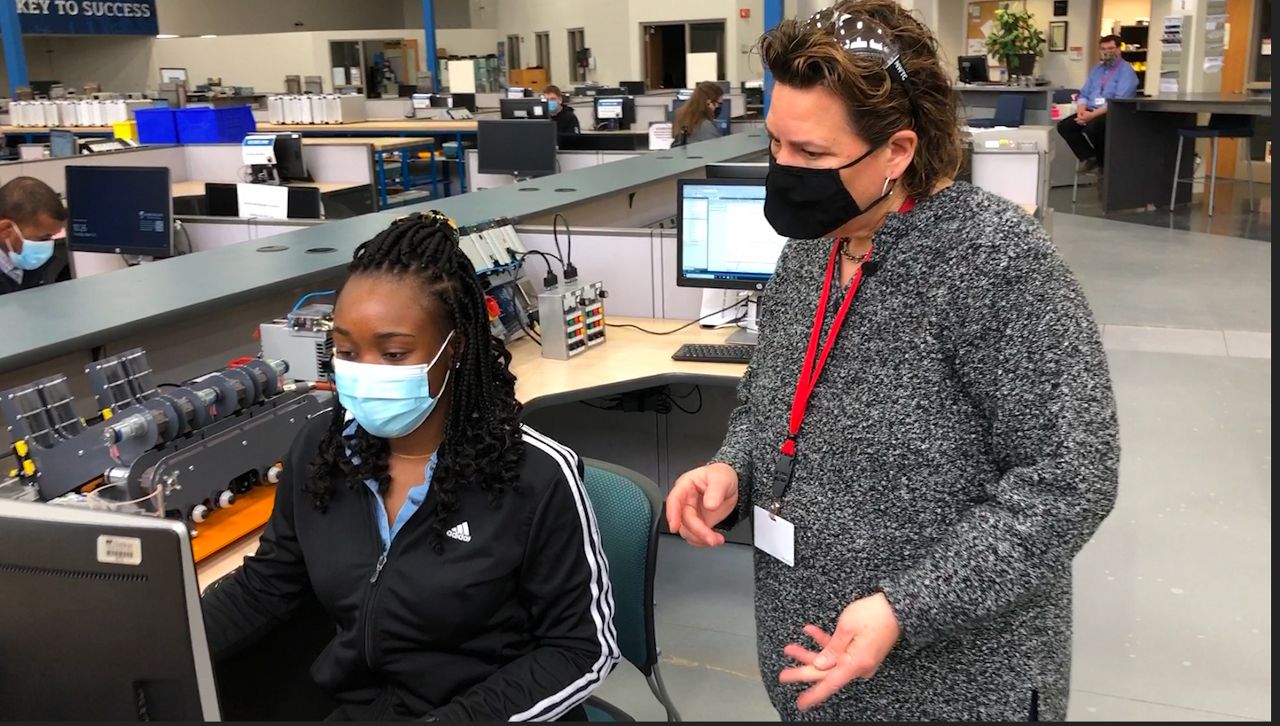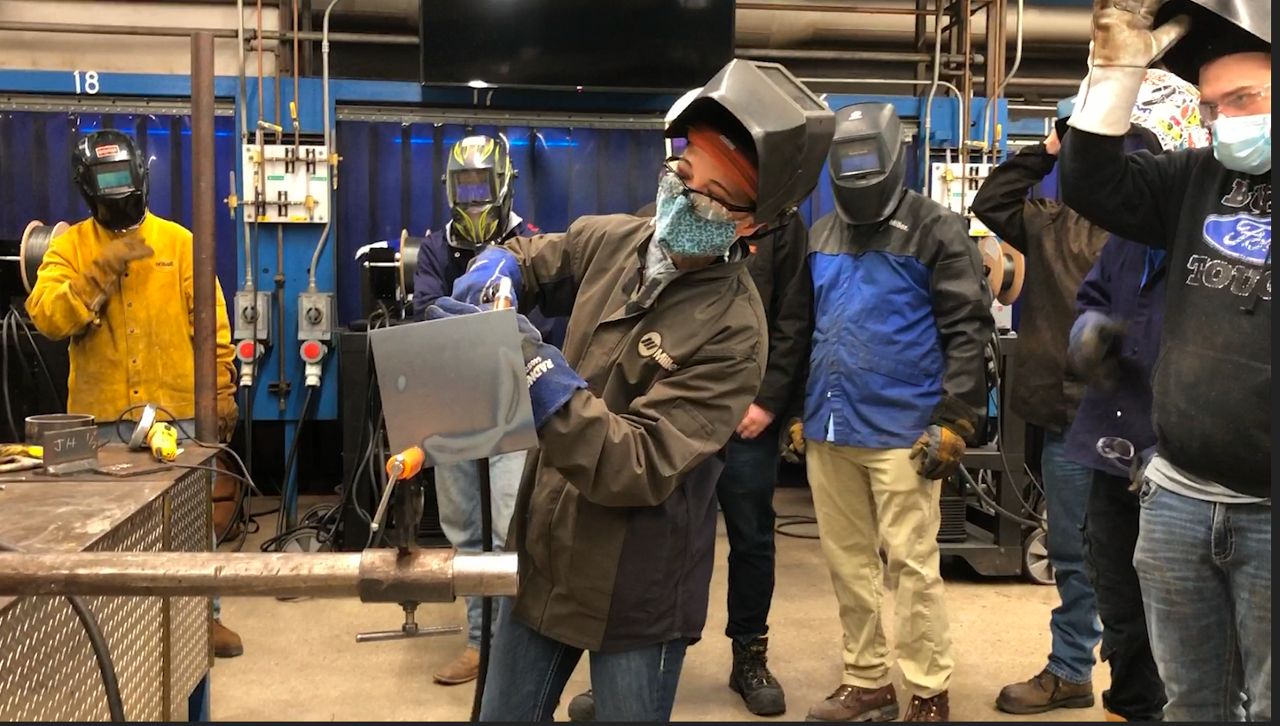GREEN BAY, Wis. — Educators and employers are making an concerted effort to get more women and girls into science, technology, engineering and math jobs.
It’s a push that’s made strides over the years and remains a focus at places like Northeast Wisconsin Technical College in Green Bay.
Favour Butterfield is one of those students. She’s charting a career as an engineer and points to her female instructors as inspiration.
“It gives other people who don’t know if they want to top through this path, ‘Hey, if she can do it, I can do it.’” Butterfield said. ”There’s someone there and, if she’s gone this far, I can do it and I can go above and beyond.”
She’s talking about Molly Delsart, an electromechanical instructor and electronics coach at the college. She worked as an electrical engineer at a time when there weren’t a lot of women in the field before moving into teaching.
“I was one in 20, one in 40. I’d go to a meeting and I wouldn’t see women for days on the job site,” Delsart said. “Now, what we’ve found is diversity brings better ideas and it brings a stronger workforce.”

She doesn’t underestimate the importance of instructors who reflect their students and the broader community
“It’s super-important for women to see women and for people to see people like them,” Delsart said.
The U.S. Census Bureau says despite making up 50% of the overall workforce, women hold about 27% of the jobs in STEM-related careers. Raising awareness of opportunites is an ongoing effort.
“There are girls and women out there who really like solving problems, who enjoy working with technology but who have never thought, ‘Hey, this could be my career,’” said Jill Thiede, the college’s associate dean of Trades and engineering.
Part of planting the seed of what’s possible with students comes from having other successful women teaching classes.
Sarah Fischer stands in the middle of a ring of students, explaining the ins and out of welding. She’s one of the college’s instructors and a graduate of the state’s technical college system. She spent years working as a welder before transitioning to education.
“I remember what it was like for me when I first started, I was intimidated by pretty much all of it. But I realized really fast, so was everybody else in the class,” she said. “It wasn’t just me because I was the girl in the class. A lot of the guys were feeling the same intimidation factor.”

Fischer said there’s a sense of satisfaction teaching welding skills to all her students — and seeing female faces looking back at her.
“When I have females in my class it puts a smile on face that they’re going to try it too,” she said.



